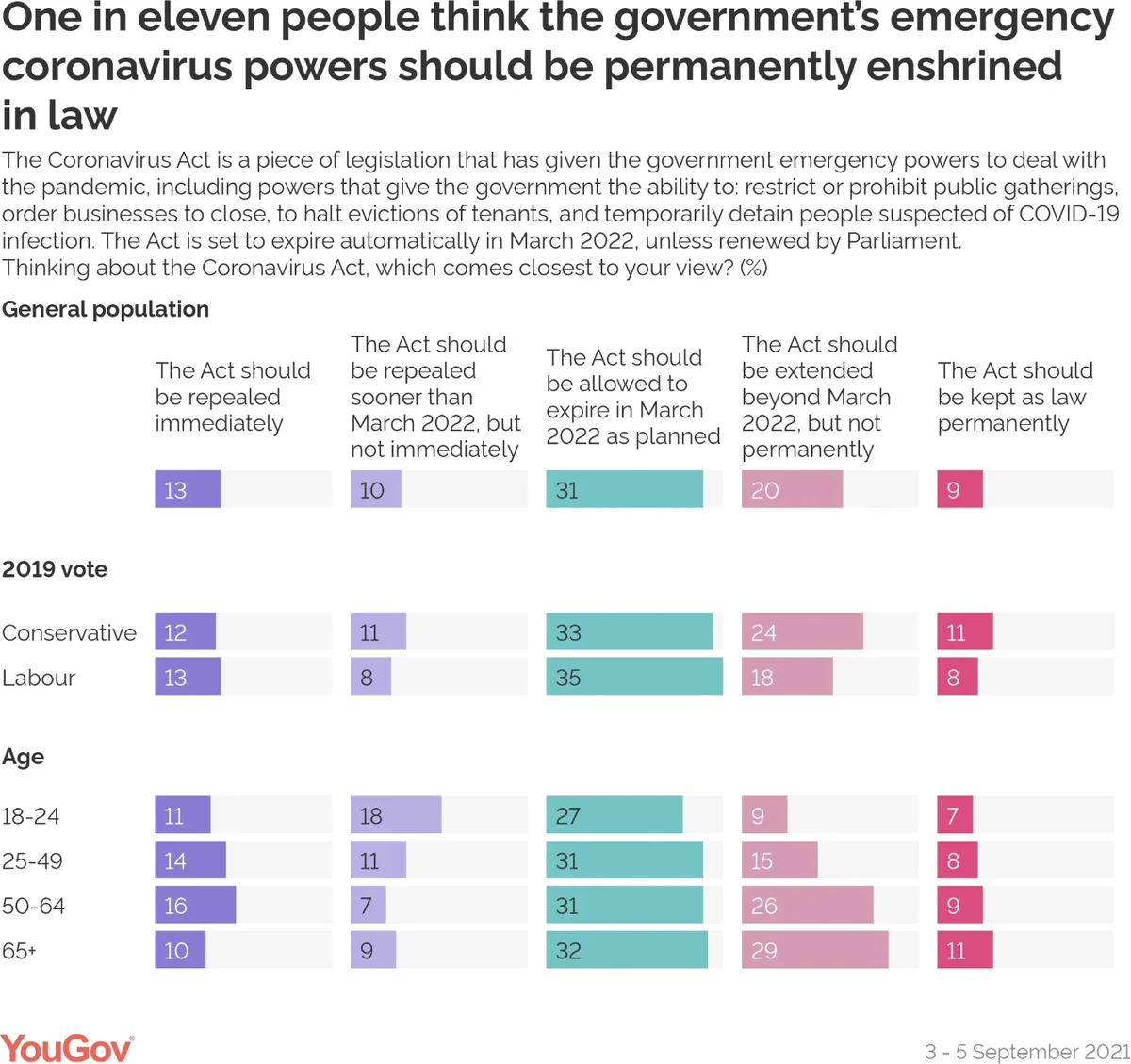The government is expected to reveal next week which parts of the Coronavirus Act will be repealed and which will be kept. The Act is a piece of legislation that initially granted the government emergency powers to deal with the pandemic. It includes the ability to restrict public gatherings, order businesses to close and detain people suspected of COVID-19 infection. Under current plans, the Act will expire in March 2022.
New YouGov research shows that nearly three in ten people think the act should be extended, however. This includes 20% of people who think the Act should be extended temporarily and 9% who think it should be permanently enshrined in law.

The most commonly held view is that the Act should be kept for the coming autumn and winter, and be allowed to expire as planned next March. One in three Britons (31%) feel this way.
Conservative voters are more likely to think the Coronavirus Act should be extended or made permanent (35%) than Labour voters (26%). However, Labour voters are not necessarily more in favour of repealing the Act early, with a higher proportion unsure (18%) than Tories (8%).
Britons aged between 18 and 24 are more likely to be in favour of repealing the Act early (29%) than other age groups. This includes 11% who think it should be repealed immediately and 18% who think it should be scrapped before March 2022 but not immediately. Some 19% of Britons aged 65 and over are in favour of repealing the Act earlier than its intended date, while 40% think it should be maintained beyond that – including 11% who think it should be permanent law.
See full results here











